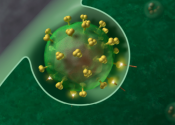Scientists zero in on antibodies capable of neutralizing HIV
More than 40 years into the HIV pandemic, scientists are shedding new light on how defenses are mounted against the virus, discoveries that may eventually lead to a neutralizing antibody that stops the virus before it becomes ...









